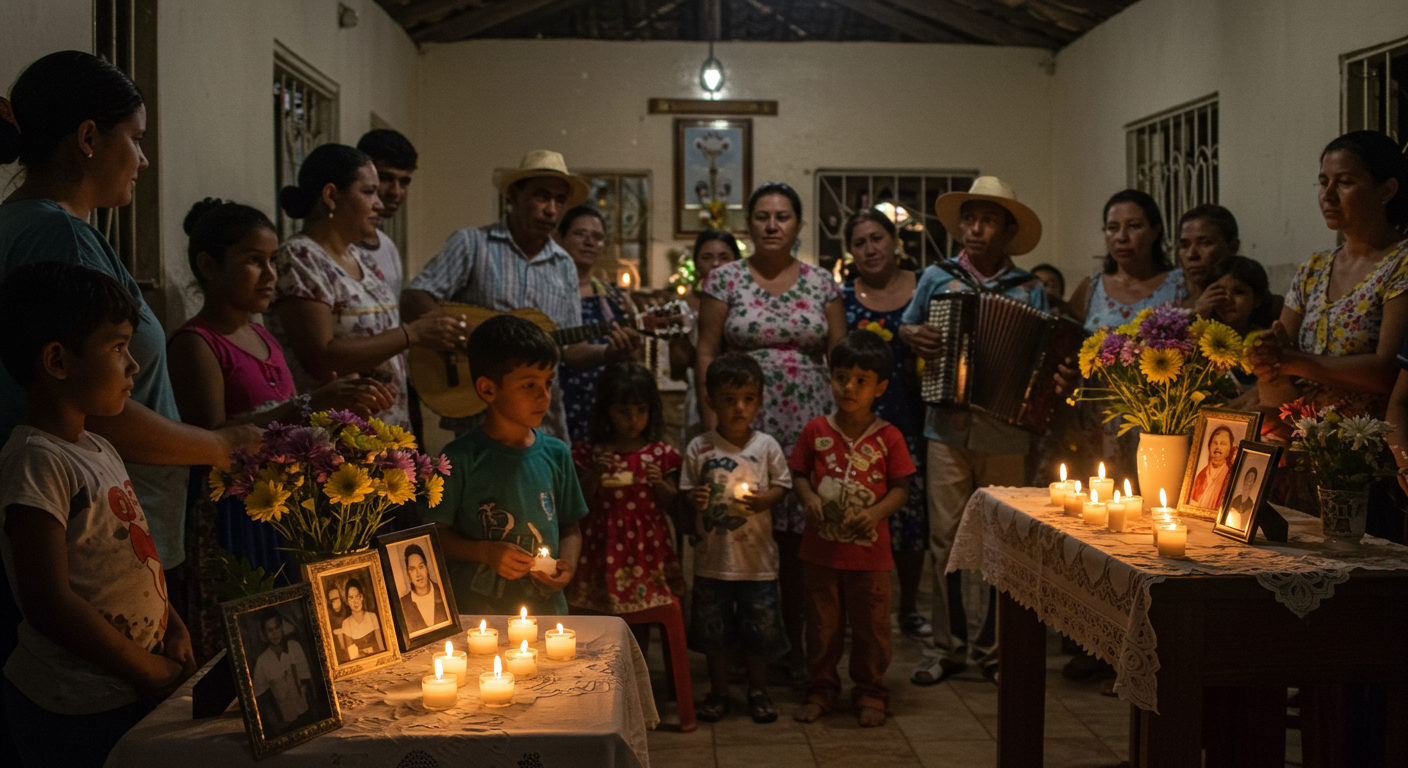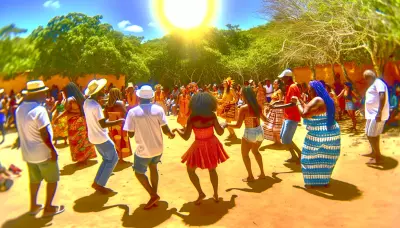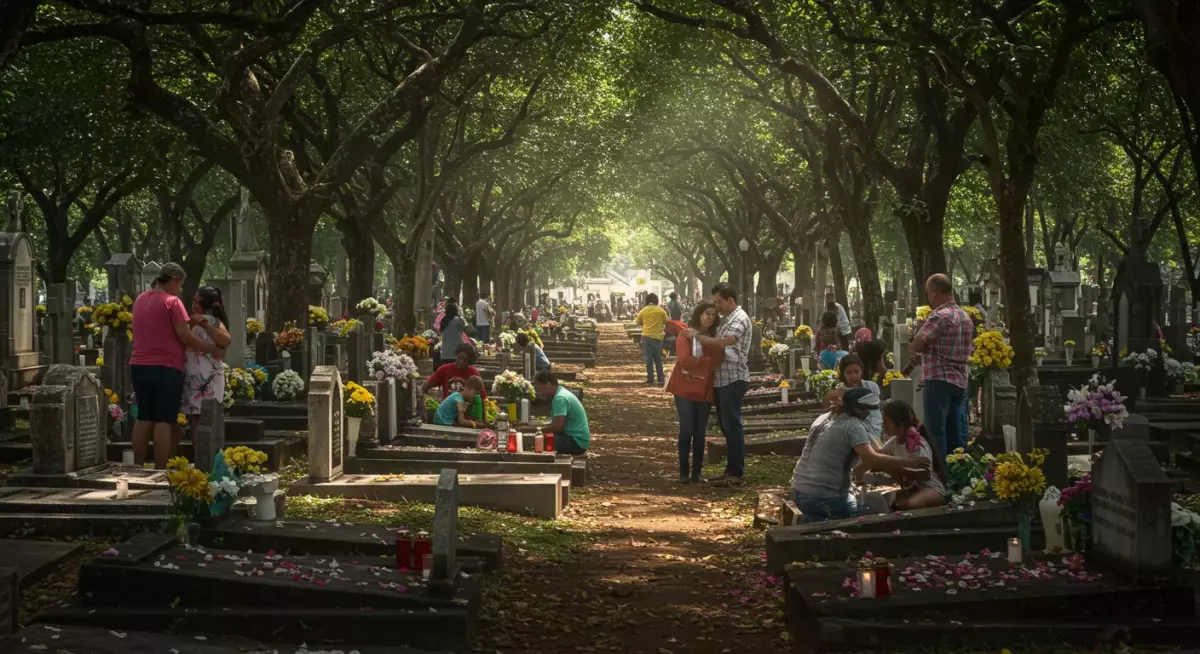The Day of the Dead is a date that invites us to reflect on the life and memory of those we love and who have passed away. In a moment when memories become more intense, traditions and tributes gain a special significance, uniting families in an act of love and respect. On this day, we visit cemeteries, light candles, and offer flowers, creating a space for memories to remain alive in our hearts.
Celebrating this date is more than a ritual; it is an opportunity to honor our connection with those who have gone. Through tributes, we reinforce the bonds that, even in physical absence, remain eternal and meaningful. Thus, as we explore the traditions surrounding the Day of the Dead, we find a way to express our love and gratitude, keeping the essence of those who left their mark on our lives alive.
What is the Day of the Dead?
Meaning and Importance of the Date
The Day of the Dead, celebrated on November 2, is a significant date that honors the memory of the dead in various cultures around the world. In Brazil, this celebration takes on a special importance, reflecting the emotional and cultural connection that Brazilians have with their deceased loved ones. The date is marked by rituals of respect, remembrance, and longing, being a moment to recall not only those who have passed but also to reflect on life and death.
The Day of the Dead offers an opportunity for spirituality and tradition to intertwine. Many believe that, on this day, the souls of the deceased return to the world of the living to receive tributes. This belief motivates thousands of people to visit cemeteries, bringing flowers, candles, and prayers. Thus, the day becomes a space for reconnection and reflection, where the aim is not only to remember but also to celebrate the lives of those who have already departed.
Historical Origin of the Day of the Dead
The origins of the Day of the Dead date back to Christian practices of remembering the dead, with roots that intertwine with the liturgical calendar of the Catholic Church. The first mention of a specific day to honor the dead occurred in the 10th century when the Benedictine monk Odilon of Cluny instituted the date as a day of prayer for all souls, particularly those in purgatory. Over time, this practice spread throughout Europe, solidifying as a deeply rooted tradition.
In Brazil, the influence of Portuguese colonization brought these religious traditions, which blended with indigenous and African practices. This syncretism generated a diversity of rituals and customs that vary from region to region, reflecting the rich cultural tapestry of the country. Therefore, the history of the Day of the Dead in Brazil is not just a remembrance of religious practices but also a testimony to the fusion of cultural identities.
Full Calendar of All Souls' Day until 2050
| Year | Next Date |
|---|---|
| All Souls' Day in 2025 | 11/02/2025 |
| All Souls' Day in 2026 | 11/02/2026 |
| All Souls' Day in 2027 | 11/02/2027 |
| All Souls' Day in 2028 | 11/02/2028 |
| All Souls' Day in 2029 | 11/02/2029 |
| All Souls' Day in 2030 | 11/02/2030 |
| All Souls' Day in 2031 | 11/02/2031 |
| All Souls' Day in 2032 | 11/02/2032 |
| All Souls' Day in 2033 | 11/02/2033 |
| All Souls' Day in 2034 | 11/02/2034 |
| All Souls' Day in 2035 | 11/02/2035 |
| All Souls' Day in 2036 | 11/02/2036 |
| All Souls' Day in 2037 | 11/02/2037 |
| All Souls' Day in 2038 | 11/02/2038 |
| All Souls' Day in 2039 | 11/02/2039 |
| All Souls' Day in 2040 | 11/02/2040 |
| All Souls' Day in 2041 | 11/02/2041 |
| All Souls' Day in 2042 | 11/02/2042 |
| All Souls' Day in 2043 | 11/02/2043 |
| All Souls' Day in 2044 | 11/02/2044 |
| All Souls' Day in 2045 | 11/02/2045 |
| All Souls' Day in 2046 | 11/02/2046 |
| All Souls' Day in 2047 | 11/02/2047 |
| All Souls' Day in 2048 | 11/02/2048 |
| All Souls' Day in 2049 | 11/02/2049 |
| All Souls' Day in 2050 | 11/02/2050 |
How is the Day of the Dead Celebrated in Brazil?
Regional Traditions and Customs
The traditions for celebrating the Day of the Dead in Brazil vary widely among different regions, reflecting the country's cultural diversity. In the Southeast, it is common for families to gather to visit cemeteries, bringing flowers, especially carnations and roses, to adorn the graves. The prayers are accompanied by moments of reflection and sharing stories about the deceased.
In the Northeast, the celebration may include the practice of lighting candles at home or in churches, as well as rituals involving music and dance, representing a festive aspect of remembering the dead. Popular festivals, such as the Day of the Dead celebrations in the cities of Pernambuco, bring an atmosphere of celebration of life.

The South region brings forth traditions linked to the cult of the dead, with practices that often involve the construction of altars at home, where photos and personal belongings of the deceased are displayed. Families also tend to prepare dishes that were the favorites of those who have passed, reinforcing the emotional bond even after death.
This diversity of practices shows that the Day of the Dead is a celebration that goes beyond sadness, allowing the living to connect with their memories in a positive and constructive way.
Common Activities and Rituals
The activities carried out on the Day of the Dead are diverse and vary according to local traditions. One of the most common practices is visiting cemeteries, where people decorate the graves with flowers and candles. This activity is not only a tribute but also a way to keep the memory of the deceased alive. The presence of groups of people in cemeteries on this day can be seen as a sign of solidarity and collective respect.
In addition to visits, many families hold prayers and masses in memory of the dead, often organized by local parishes. These religious celebrations offer a space for reflection and communion between those who remain and those who have departed.
Another common practice is holding family dinners or gatherings, where family members share stories and memories of the deceased. This tradition helps keep the family history alive and strengthens the bonds among the living.
In some regions, there is also the practice of releasing balloons or lighting fireworks in tribute to the dead, symbolizing the liberation of souls. Thus, the Day of the Dead becomes a moment of celebration of life, reaffirming the importance of memory and family continuity.
Is the Day of the Dead a National Holiday?
Legislation and Holiday Dates
The Day of the Dead is recognized as a national holiday in Brazil, as established by Federal Law No. 662, of April 6, 1949. This legislation determines that November 2 is a holiday dedicated to the memory of the dead, allowing people to participate in tributes without the worry of professional commitments. The date is especially significant for Catholics but is widely respected by various other religions and cultures.
However, the way the holiday is treated can vary between municipalities and states. Some localities may choose to keep public services running, while others close schools and offices. This can lead to a debate about the importance of the holiday and its impact on cultural practices in different regions.
In summary, the Day of the Dead is a moment of pause and reflection throughout the country, enshrined by law, allowing Brazilians to honor the memory of their loved ones in an appropriate and respectful manner.
Tips for Honoring Your Loved Ones
Ideas for Tributes and Celebrations
Honoring loved ones on the Day of the Dead can take many forms, allowing each person to find a way that connects with their emotions and traditions. Here are some suggestions that can help make this date even more meaningful:
- Cemetery visit: Bringing flowers and lighting candles at the graves of loved ones is one of the most traditional and respectful tributes.
- Family gathering: Organizing a dinner or a meeting with family members to share stories and memories of those who have passed can strengthen family ties.
- Creating an altar: Setting up an altar at home with photos and significant objects of the deceased is a way to keep them present in your daily life.
- Writing letters: Indeed, writing letters to the deceased can be a therapeutic way to express feelings and longing.
- Donations in memory: Contributing to charities or causes that the deceased supported is a way to perpetuate their legacies.
How to Choose Flowers and Offerings of Respect
The choice of flowers and tribute items is an important part of the Day of the Dead celebration. Here are some tips for selecting appropriate offerings:
- Traditional flowers: Carnations, lilies, and roses are the most commonly used flowers, symbolizing love and respect.
- Simple arrangements: Opting for simple and elegant arrangements can be more respectful than excessively elaborate compositions.
- Candles: Lighting candles is a ritual that symbolizes the illumination of souls and the connection with loved ones.
- Personal items: In addition to flowers, consider bringing items that were significant to the deceased, such as books or photos.
These choices should reflect the affection and respect you feel, making the tribute even more special.
Products and Services Related to the Day of the Dead
Where to Buy Flowers and Candles?
Finding suitable flowers and candles for the Day of the Dead can be facilitated with some tips on where and how to buy them:
- Local florists: Visiting florists in your area can ensure fresh and quality products.
- Markets and fairs: Often, markets and fairs offer flowers at affordable prices and in local varieties.
- Online shopping: E-commerce platforms like Amazon and Mercado Livre offer a wide range of options, including home delivery.
- Supermarkets: Some supermarket chains also provide flowers and candles, especially during the Day of the Dead season.
Burial and Planning Services
With the Day of the Dead approaching, it is essential to consider the burial and planning services that may be necessary. Here are some recommendations:
- Burial plans: Many funeral homes offer plans that can be purchased in advance, ensuring that all details are taken care of.
- cremation: Inquiring about cremation services can be useful, especially for families who choose this alternative.
- Necessary documentation: Check which documents are needed for burial or cremation, ensuring that everything is in order.
- Consultation: Look for companies that offer funeral planning consultation, helping to alleviate the emotional burden in difficult times.
This information can facilitate the organization process and ensure that the tributes are carried out in a dignified and respectful manner.
A Final Reflection
The Day of the Dead is a date that transcends mourning and becomes a moment of deep reflection and tribute. Throughout this article, we explored its cultural and emotional significance, as well as the various traditions that enrich this celebration in Brazil. Each custom and ritual, from visits to cemeteries to personal tributes, reinforces the importance of keeping the memory of those who have already departed alive.
The most valuable reflection we can take from this date is the need to honor our loved ones, not just on a specific day but throughout our lives. Celebrating memory is an act of love that connects us to the past, teaches us about life, and motivates us to live more intensely. May each tribute made on the Day of the Dead inspire a continuous commitment to valuing life and the legacy of those who preceded us.


